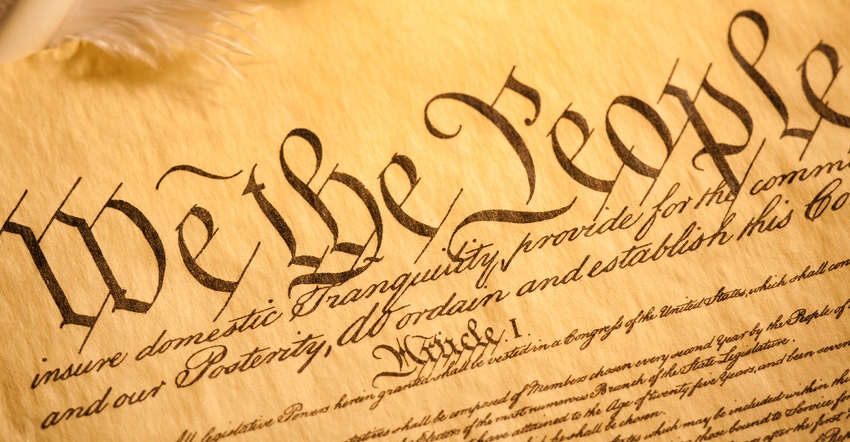January 8, 2020

Imagine you are a student and came to my class in American government. I am giving a pop quiz. Your score on this exam will represent 50% of your final grade. Can you ace it? You have 20 minutes. No internet access, no phones or iPads, no books. Just pencil and paper.
Ready, set, GO:
What are the three branches of government?
What responsibilities are the sole purview of each?
Describe the system of checks and balances as set forth in the Constitution.
How does proposed legislation become law?
Who has the sole authority to declare war?
How are treaties negotiated and ratified?
Describe the process required to pass a constitutional amendment.
Who has the power of the purse?
Who implements legislated policy?
Who has the authority to investigate activities of the President and to pass articles of impeachment?
In the event of an impeachment ruling, who sits as the jury in the trial?
Who is the presiding judge in an impeachment hearing?
Did you pass? Next question: How well do you think the average “Joe Sixpack” voter on the street would do if he were taking the quiz? How about the average farmer in the field?
Benjamin Franklin, when asked whether we had a republic or a monarchy, replied, “a republic … if you can keep it.” That, my friends, is the relevant statement.
Writer James D. Best posits the reason pure democracies fail is that majorities learn that they can legally take property or liberties away from others. Those subjected to abuse can be anyone outside the majority coalition … and demagogic leaders become adept at appealing to the emotions of jealousy, avarice and entitlement.
A major difference between a republic and a democracy, according to Mr. Best, is immediacy. In a democracy, decisions are made in the heat of the moment, while periodic elections in a republic provide a cooling-off period. Democracies are ruled by feelings, while in a republic the rule of law governs.
Let’s remember that stark difference. We are a nation that abides under the rule of law. Even as imperfect as it is, our republic is far preferable to chaos and decline into oppressive rule by an uncaring majority.
The danger within
Frankly speaking, we are not listening to those voices calling us back to the rule of law and to respect the voices and opinions of others. In fact, we hardly recognize them, if at all. If one were to take a day-long “stroll” through any social media, we would find most farm folks lack proficiency regarding our republic form of government. I have not only read about it, but have witnessed this firsthand in countless discussions, online and in person. Joe Sixpack is not only alive and well, but he, or she, is every person’s neighbor, or relative.
A survey released by the Woodrow Wilson National Fellowship Foundation in 2018 shows a little over a third of Americans would pass a basic multiple choice test on government. Respondents over age 65 scored the best at 74%. Other age groups scored as low as 19%. Judging from experience of interacting with farm folks who are not actively involved in farm policy matters, I would be surprised if their numbers are any better.
The greatest danger we face in America today is not a threat from without, but from within. And that threat is increasing exponentially as we ignore the rule of law as set forth within the bounds of our constitutionally formed republic.
This threat will increase if we do not take greater responsibility for our role in the educational processes of our children and grandchildren.
A well-known child psychologist, Dr. James C. Dobson, once said that for children to learn a behavior or word, they must see it more than 200 times before it becomes internalized. Which means the parent presents that particular word or action over and over again as the child watches, listens and finally responds.
That’s just the mechanics of learned behavior. The important stuff, the words and actions that the parent teaches, however, are what gives it meaning that the child ultimately internalizes as his or her own.
Therein lies the challenge and opportunity. In agriculture, not only are we failing to benefit from an informed electorate, we are not engaging ourselves and our commodity groups in ways that promote understanding of our system of government.
Let’s all work to change that for the better. We owe that much to the generations who follow our lead.
Penner is a Marion County farmer and past president of the National Association of Wheat Growers. His email is [email protected].
About the Author(s)
You May Also Like




